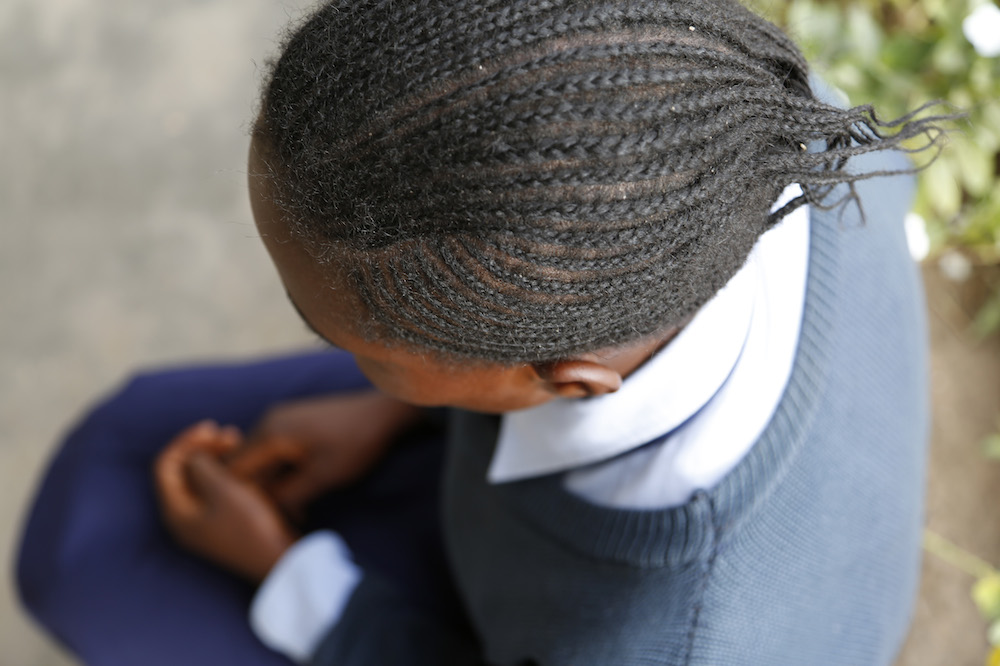
Maasai mother, member of parliament and champion for education and girls’ rights
Barriers to education, Child marriage, Girls' education, Right to education
Peris Tobiko resisted attempts to make her a child bride in Kenya - now she works to build schools and keep girls in the classroom.
After outmaneouvring her illiterate father three times by the age of 18 to escape his plans to make her a child bride, Peris Tobiko decided the only way to protect other Maasai girls in Kenya from harmful traditions was to become a leader.
She made national headlines when she was elected to parliament in 2013 – the first woman from her conservative Maasai community to win a seat – despite elders performing a death curse on anyone who dared vote for her.
“When I was growing up, I was just thinking: ‘How do I get to defend the girl child?” 48-year-old Tobiko told the Thomson Reuters Foundation at her family home in the Kenyan capital Nairobi.
“For me, it became the drive … Women don’t have a say and I thought I could become a voice and encourage others to come out and speak.”
The mother-of-four campaigned tirelessly to win a second term in Kenya’s August elections as member of parliament for Kajiado East, where the dusty plains on the southern outskirts of Nairobi are rapidly urbanising.
Her next dream is to become Kajiado’s governor in 2022, an influential position with responsibility for basic healthcare, early education, local roads and other infrastructure in the east African nation’s 47 counties.
Kenya has among the lowest female political representation in the region as women have struggled to make gains in the face of violence, intimidation and sexism.
Like most Kenyan politicians, Tobiko is accompanied by an armed bodyguard and pays for extra security at public functions because of fierce competition for the $10,000 a month job.
“It definitely needs a lady who has prepared herself to grow a thick skin,” she said, describing how her friend, Flora Terah, was abducted and tortured in 2007 when she stood for parliament.
But it has not deterred her.
“If I shy away, then how else do we encourage other women?” she asked. “It’s a cause I believe in and somebody must do it.”
"I knew I had to go to school, I had to work hard, to make a difference in her life." Peris Tobiko talking about her mother
Tobiko’s determination was clear from a young age. When her father first tried to marry her off, aged 13, she ran away and got older women in the community to report him to the police.
“It was not easy but I think it helped to shape a lot of my thinking, trying to make a difference in the life of children in that community,” she said, laughing that she almost became the fourth wife of a polygamous old man who is now her constituent.
Tobiko’s ambition was also fuelled by the wish to protect her mother who risked being cast out of her home by her in-laws for failing to produce a male heir after her husband died.
“I felt she needed either a boy or somebody who will act in that capacity,” said Tobiko, who dresses traditionally in Maasai embroidered regalia with closely-shaven hair at her rallies.
“I knew I had to go to school, I had to work hard, to make a difference in her life.”
After working for the government’s pension fund, she ran for parliament in 2007 but came third.
The second time around in 2013, Maasai elders held a ceremony to curse her when she won the party primaries.
“The elders came and said: ‘She will die … Even those who vote for her, they will die’,” she recalled.
But the younger generation defied them.
“They told their fathers: ‘We are ready to die with her so let’s see if your curses will work … We are tired of the male leaders and so we want to try a different direction.’”
Some of the elders who cursed her are now her biggest supporters because of her track record, she said.
Education has been her priority, with her constituency budget focused on building and upgrading schools and paying bursaries to keep girls in secondary school.

“I think it is the one single factor that can change society,” she said. “It’s the long-term solution to all those harmful traditions.”
At puberty, Maasai girls traditionally undergo female genital mutilation (FGM) to remove their external genitalia, before being taken out of school to become wives and mothers.
“It’s like they are less human,” said Tobiko, who was cut at the age of 10, describing how many girls die from profuse bleeding or during childbirth as a result of FGM.
She is glad the practice is declining, partly as a result of her own rebellious hunger for education as a girl.
“Some (parents) are saying: ‘Now you see a girl can become anything in this life if you give them the opportunity.”
“(Girls) inbox me and they say: ‘Mum, keep on going, you are our mentor’ … That gives me the courage to continue and the energy to go on.”
More news

Skills for the future give young people the best chance of success
